Linda Rama: The bag of globalization on our children's backs
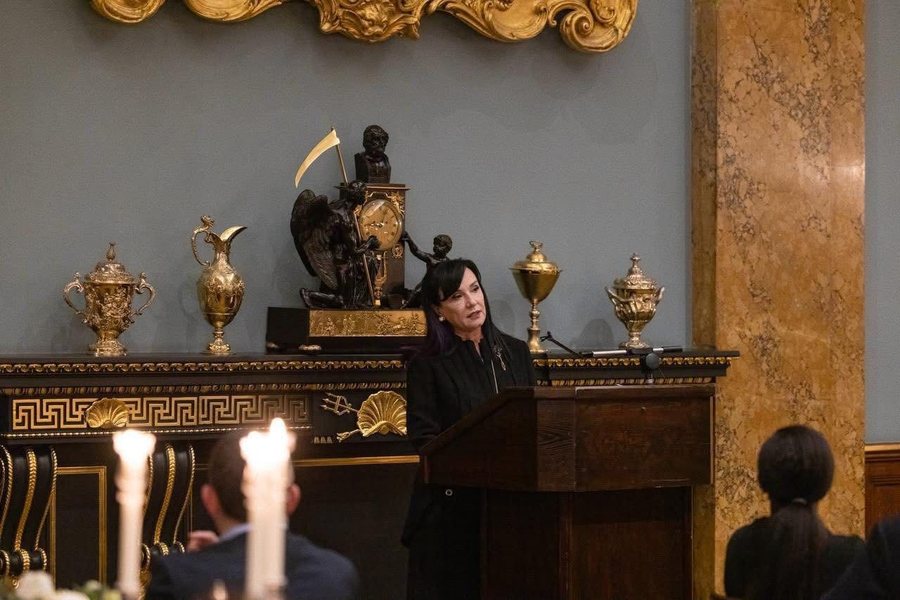
I feel deeply honored to be among you tonight and, frankly, not entirely convinced that I deserve such a special space in such a special gathering.
Thank you, Fiona. It means a lot to me that you, a brilliant mind that I have long respected, have entrusted me with such a task.
And I cannot resist mentioning here another person very dear to me, a woman whom I admire not only for her profound judgment but above all for her strength of character. She is Cherie Blair, and I will never be able to thank her enough for, as a true friend, helping me to overcome a dangerous prejudice, the idea that my professional work could not continue normally after my husband became Prime Minister.
Dear friends,
In a gathering as meaningful as this, it would make little sense for me to lecture anyone here about globalization, about what works and what doesn't.
But perhaps it makes sense to share with you some thoughts that the question “Are we still living in the era of globalization?” evokes in someone like me, who has gone through the tunnel of communism.
I was 28 when I crossed the border and left my small country for the first time. At that age, I used the book 'Essential English' for the first time to speak to a foreigner, held a US dollar bill in my hand for the first time and made my first currency exchange, and entered a library filled with books in foreign languages for the first time.
It was 1992. I had just seen the light at the end of a very long tunnel. Our greatest dream was freedom. The freedom to move, to vote, to speak, to believe or not to believe in God, to work. The dream of freedom had completely consumed us, even though we still didn't know what to do with it, or what it would bring to our lives.
At that moment, the developed and free world was pursuing its great dream, globalization. A world beyond the end of history: without ideology, without walls, without borders, with more freedom and a better life. Memories of war and the wounds of deep divisions made the desire for unity and peace even stronger among nations. So, while we were fleeing communism and dreaming of joining your world, you were dreaming of a global village and rapidly making it a reality. In short, neither we nor you were fully aware of what awaited us.
For someone born in a country that has always produced more history than it can chew, the “end of history” seemed like a blessing and the opening of roads, seas, and skies to reunite with your civilization, like a miracle.
Today I know more. We all know more. And, although I would never go back, the return of history, with its turbulent seas and stormy skies, makes the path forward much less certain than it once seemed.
We know well the advantages that globalization has brought to humanity. It has connected humanity in ways once unimaginable. Economies produce more, better and cheaper, reaching even those who, without globalization, would have found it impossible to survive. Innovation flourishes thanks to global cooperation in science and technology, bringing great achievements in medicine, renewable energy and communication. Music, film and art travel freely, carrying talent, sounds and stories across cultures, helping us to understand and know each other better. Communication is faster and more inclusive than ever; cloud computing, artificial intelligence and online interaction have deepened digital integration beyond any prediction.
These are the advantages that allow even a small country like Albania to feel and act without borders, like her daughter Mother Teresa, who once said:
"By blood I am Albanian. By citizenship, Indian. As for my calling, I belong to the world."
She reminded us that identity is not a wall, but a bridge. That belonging, when divided, does not diminish, but multiplies.
Equally limitless are the achievements of Ismail Kadare, our great writer translated into more than 45 languages, and of Albanians like Dua Lipa, Ermonela Jaho or Mira Murati, who have reached the pinnacles of world art, science and technology.
Without the benefits of globalization, Albania’s natural beauty would have remained isolated. Twelve million visitors came last year to a country of fewer than three million people. Every encounter, every shared meal, every photograph taken on our shores or cultural sites is Albania rediscovering its place in global history.
Likewise, our European integration, reaffirmed in every international forum and supported by the vast majority of Albanians at home and abroad, would have remained a fading dream if we had not shared the unstoppable momentum brought by globalization.
But we also know that this “beautiful illusion that ran faster than its own heart,” as someone described it, is not dead. It is simply “disintegrating, undermined by its own contradictions,” as another rightly said.
Today, political globalization seems deeply fragmented. The legitimacy of global institutions is questioned. Poverty and inequality persist stubbornly. Geopolitical rivalries are growing. Isolationism is resurgent. Nationalisms are resurfacing. Wars are spreading their influence across borders. Anti-immigrant movements are growing. Earned rights are being eroded. Digital life and social networks disorient us, and uncertainty prevails in the virtual world we live in every day, where our data disappears into a darkness we cannot see.
In 2025, what we once saw as the greatest story of human progress is now doubted and bombarded with questions every day, while uncertainties of all kinds add to stress, anxiety, and intergenerational tension.
The reasons are undoubtedly broader than I can grasp, but, drawing on our communist and pre-communist past and the three decades of transition, I would focus on one key factor:
We have not yet learned how to live and behave globally in these new circumstances. We had no way of knowing before and we still do not know enough today. As globalization expanded its territories, our reflection and learning should have expanded as well. But both have been insufficient compared to the scale of globalization’s expansion.
Although today thinkers and researchers reach us more easily through social media, podcasts, and countless programs, we still rarely listen to philosophers, economists, sociologists, psychologists, technologists, linguists, or doctors. We listen even less to ordinary people and their daily lives.
And so, we try to manage an incredibly complex and dynamic world with the practices, beliefs, and limitations of the past instead of understanding, learning, and adapting with it.
Are we still living in the era of globalization?
Yes, we live because, as Tony Blair said in 2019, “Globalization is not a choice, it is a reality.”
To close, as I prepared for these words, I couldn't help but draw a parallel between today's phase of globalization full of challenges and questions and the school bag of Zaho, my 11-year-old son.
Do you remember how in our generation school bags were carried by hand, which is why they were called "school bags"? Today, no child carries a bag in their hand anymore. Everyone carries it on their back, because over the years, bags have become bigger and heavier, so much so that no small child can carry them any other way. And so, our children go to and from school every day bent under its weight.
Do you know why? Because in that bag, in that child's backpack, the past and the present coexist. Inside are the iPad or personal computer, but also traditional textbooks, the digital pen and the pencil case full of pencils, the calculator and the squared notebook where mathematical logic is taught as in the past, the notebooks and homework notebooks as before.
There are teachers in school who still don't know where the past ends and the present begins in their educational methods and behaviors, while they themselves have to become students again to keep up with the digital change. And it is we, the parents, who panic about the mystery of the future, relentlessly applying the rules of the past.
This is the bag of globalization on Zaho's shoulders. Full of endless opportunities to learn, but heavy, complicated, and, at times, chaotic. We all carry that bag today.
This is the bag of globalization.
Dear friends,
It is right to be deeply concerned when we see that everyday decisions challenge the principles and goals of the original dream of globalization. But we should not be alarmed by its slowdown. This slowdown can be a gift that gives us time to reflect, to make the journey easier, clearer, less stressful, and easier for our children to bear.
Thank you.
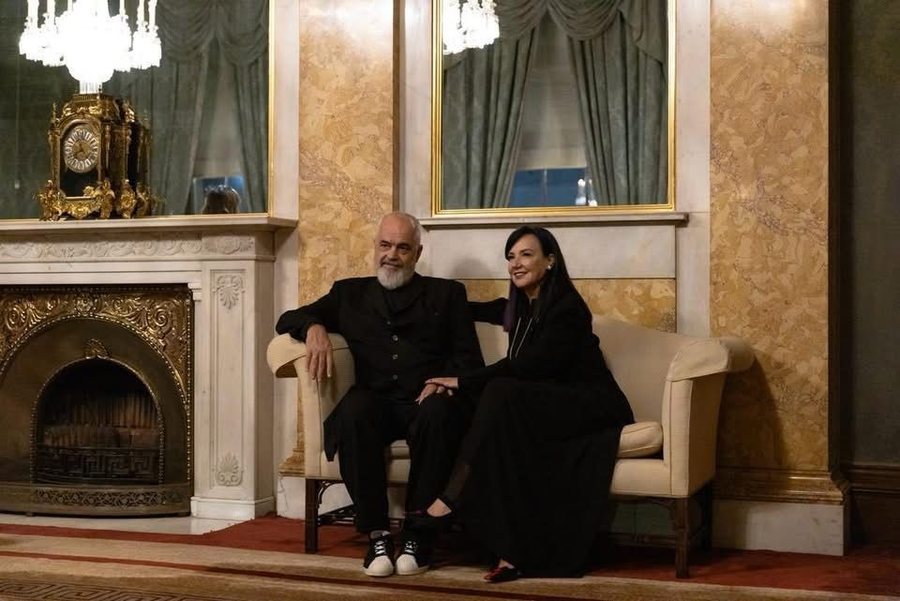
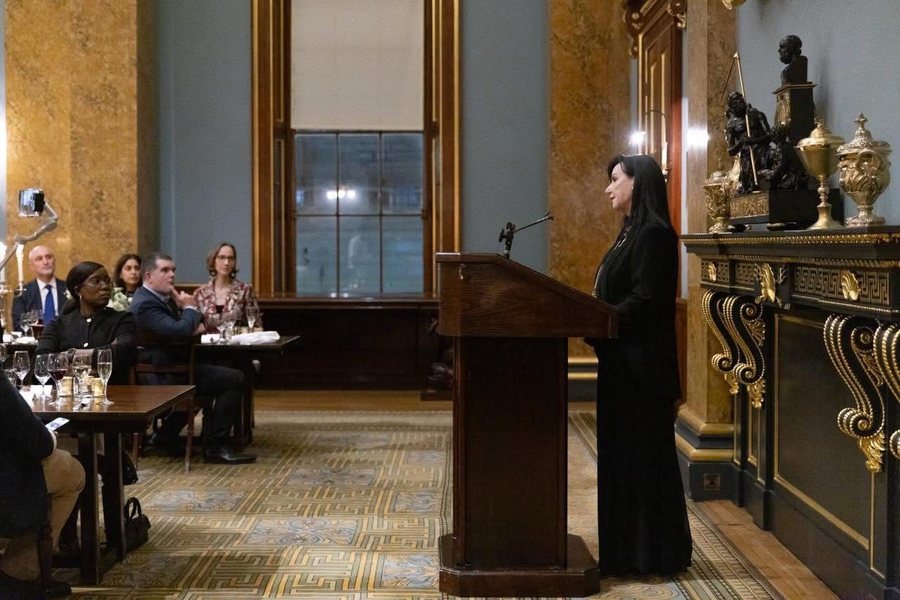
Address at the dinner organized with the guests of the International Forum on Security and Global Policies, London 2025.
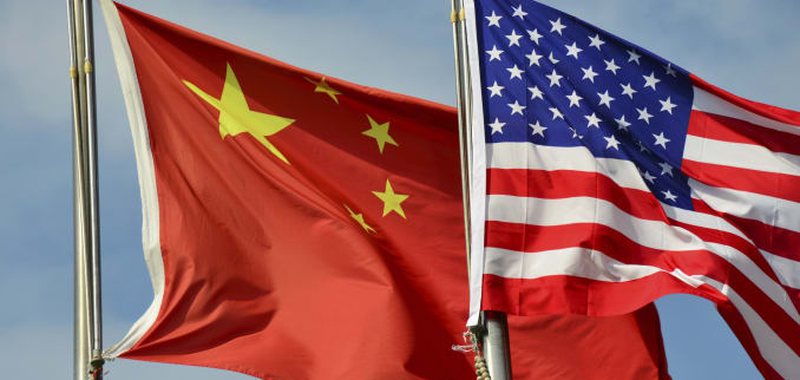
China "overtakes" the US - Becomes Germany's largest trading partner in 2025
China has regained the top spot as Germany's largest trading partner during the first eight months of 2025, surpassing the United States, according to......
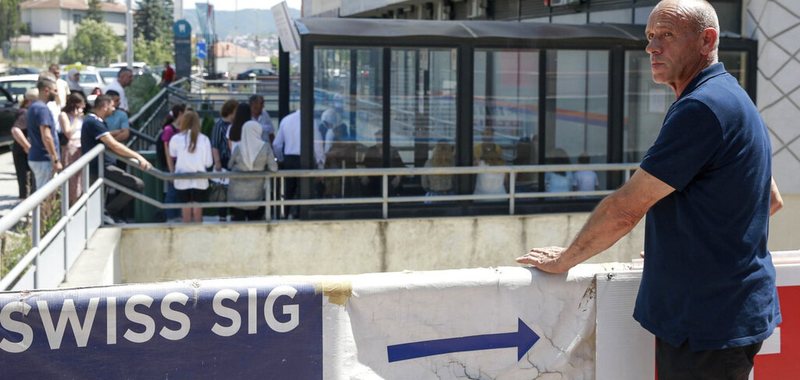
Will Kosovo accept asylum seekers rejected by Britain? - Acting Prime Minister Albin Kurti confirms start of talks
Kosovo has become the first country to publicly confirm that it is considering the possibility of building centers for the return of asylum seekers rejected......
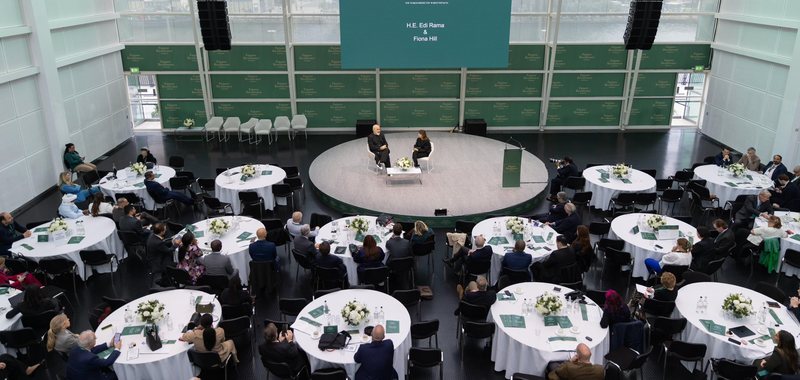
Rama participates in the Berlin Process Summit in London!
Prime Minister Edi Rama will participate today in the proceedings of the annual Berlin Process Summit, which is being held in London with the participation......

Instability continues in the foreign exchange market - How much are foreign currencies being exchanged today?
The US dollar has had very slight fluctuations in its quote this morning compared to yesterday, as it was bought today at 82.7 lek and sold at 83.7 lek......

Greek supermarkets, among the cheapest in Europe. Product prices, up to 33% lower than in Germany.
Prices in Greek supermarkets remain lower compared to countries such as France, England, Italy, Spain, Portugal, Germany and Romania, according to a study by......

"Global supply of rare metals at risk" - Goldman Sachs raises the alarm: China controls the vast majority of production
Investment bank Goldman Sachs has warned of growing risks to global supply chains for rare metals and critical minerals, highlighting China's dominance in......
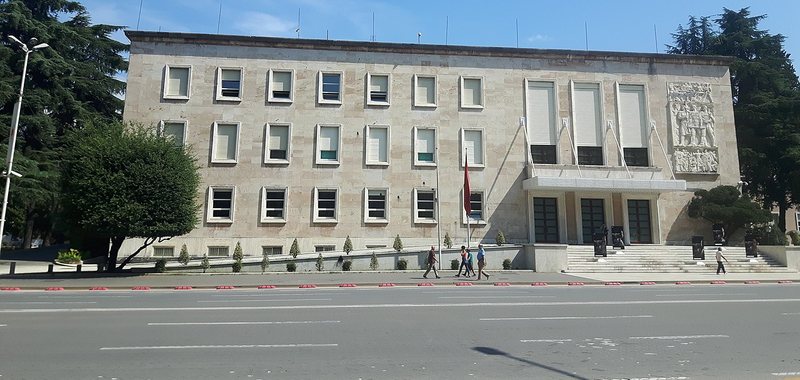
The third review of the 2025 budget, here are the additions for some key institutions
The third revision of the 2025 Budget has allowed the government to allocate additional funds to several key institutions. The list of beneficiaries......
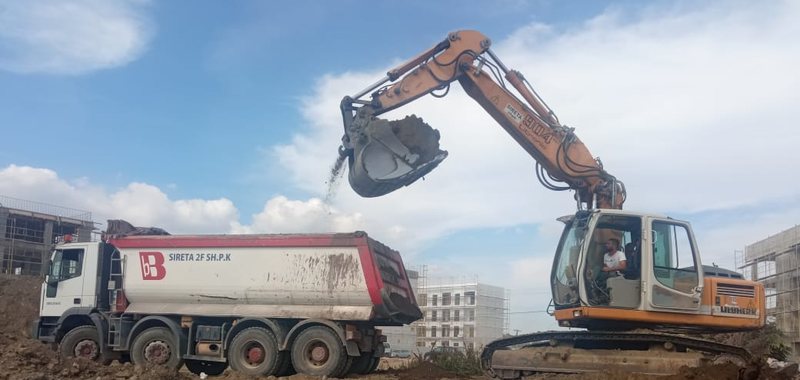
Third revision of the 2025 Budget, additional 24 million euros for infrastructure projects
For the third time this year, the government has revised the state budget for 2025 through a normative act. As for institutions, the largest budget increase......


















